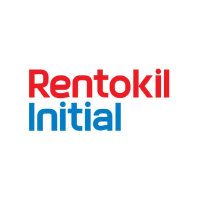
Rentokil Initial PLC
LSE:RTO

Dividends
Dividend Yield
Rentokil Initial PLC

| Current Yield | |
| Min Yield | |
| Max Yield | |
| Average Yield | |
| Median Yield |
Dividend Per Share
Rentokil Initial PLC

 RTO have
increased
by 9%.
RTO have
increased
by 9%.
Payout Ratio
Rentokil Initial PLC

Peers Comparison
Dividends

Shareholder Yield
Current shareholder yield for  RTO is
hidden
.
RTO is
hidden
.
Shareholder yield represents the total return a company provides to its shareholders, calculated as the sum of dividend yield, buyback yield, and debt paydown yield. What is shareholder yield?
Peers Comparison
Shareholder Yield

Buybacks
Buyback Yield measures how much a company reduces its outstanding shares through repurchases, expressed as a percentage.
This metric directly reflects the company’s efforts to return value to shareholders. By reducing the number of shares, buybacks can increase earnings per share and potentially boost the stock's price.

Peers Comparison
Buybacks

Debt Paydown
Debt Paydown Yield measures the amount of debt a company repays within a specific period, shown as a percentage of its market capitalization.
This metric indicates how the company is using its capital to decrease financial liabilities, which can strengthen its financial health and potentially enhance shareholder value.

Peers Comparison
Debt Paydown

Price Appreciation
RTO Price
Rentokil Initial PLC

| Average Annual Return | 1.07% |
| Standard Deviation of Annual Returns | 15.76% |
| Max Drawdown | -53% |
| Market Capitalization | 8.8B GBX |
| Shares Outstanding | 2 524 540 000 |
| Percentage of Shares Shorted | 130% |
Stock Splits
RTO's latest stock split occurred on May 19, 1997
The company executed a 2-for-1 stock split, meaning that for every share held, investors received 2 new shares.
The adjusted shares began trading on May 19, 1997. This was RTO's 3rd stock split, following the previous one in May 11, 1992.






















































 You don't have any saved screeners yet
You don't have any saved screeners yet
